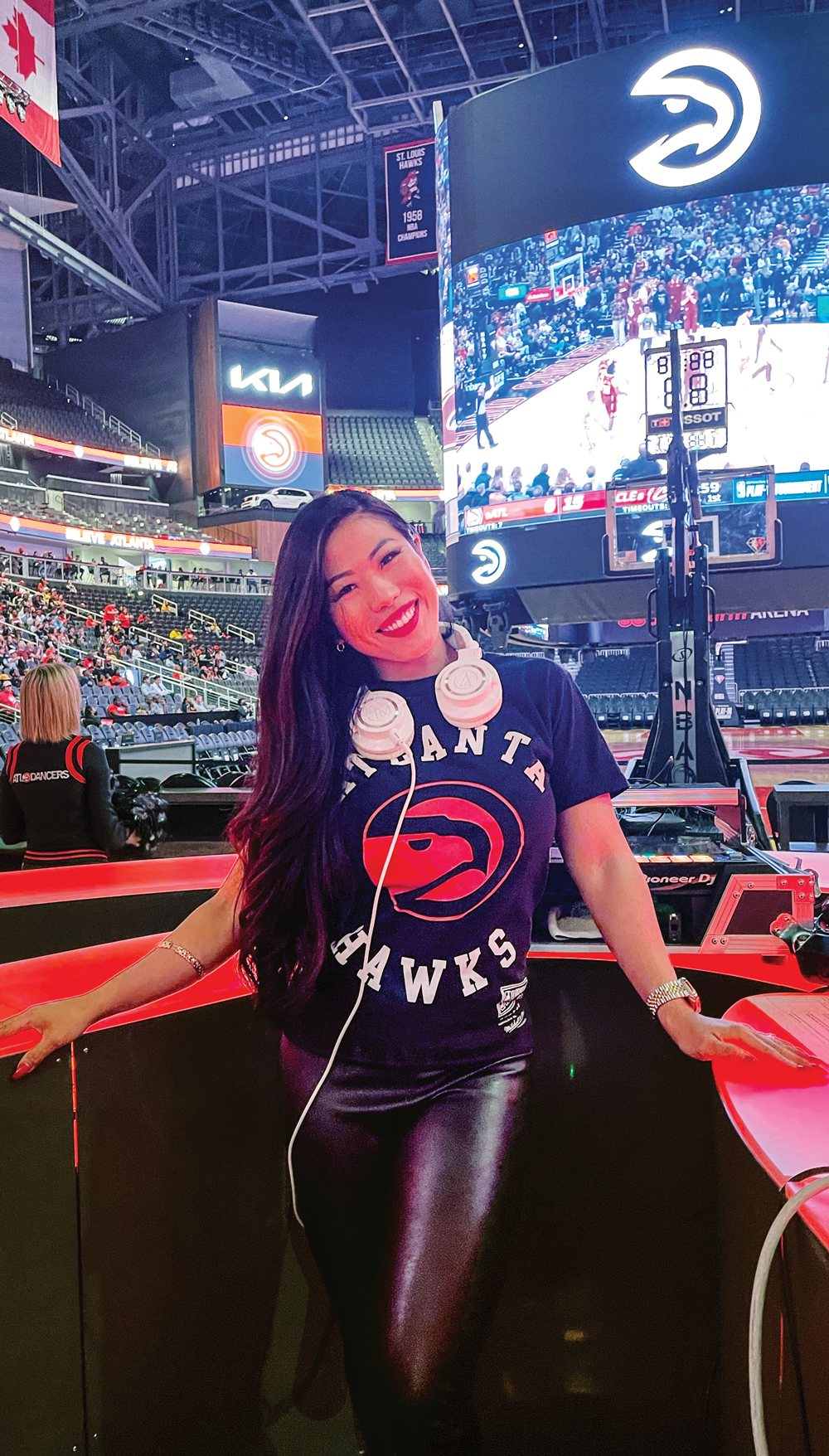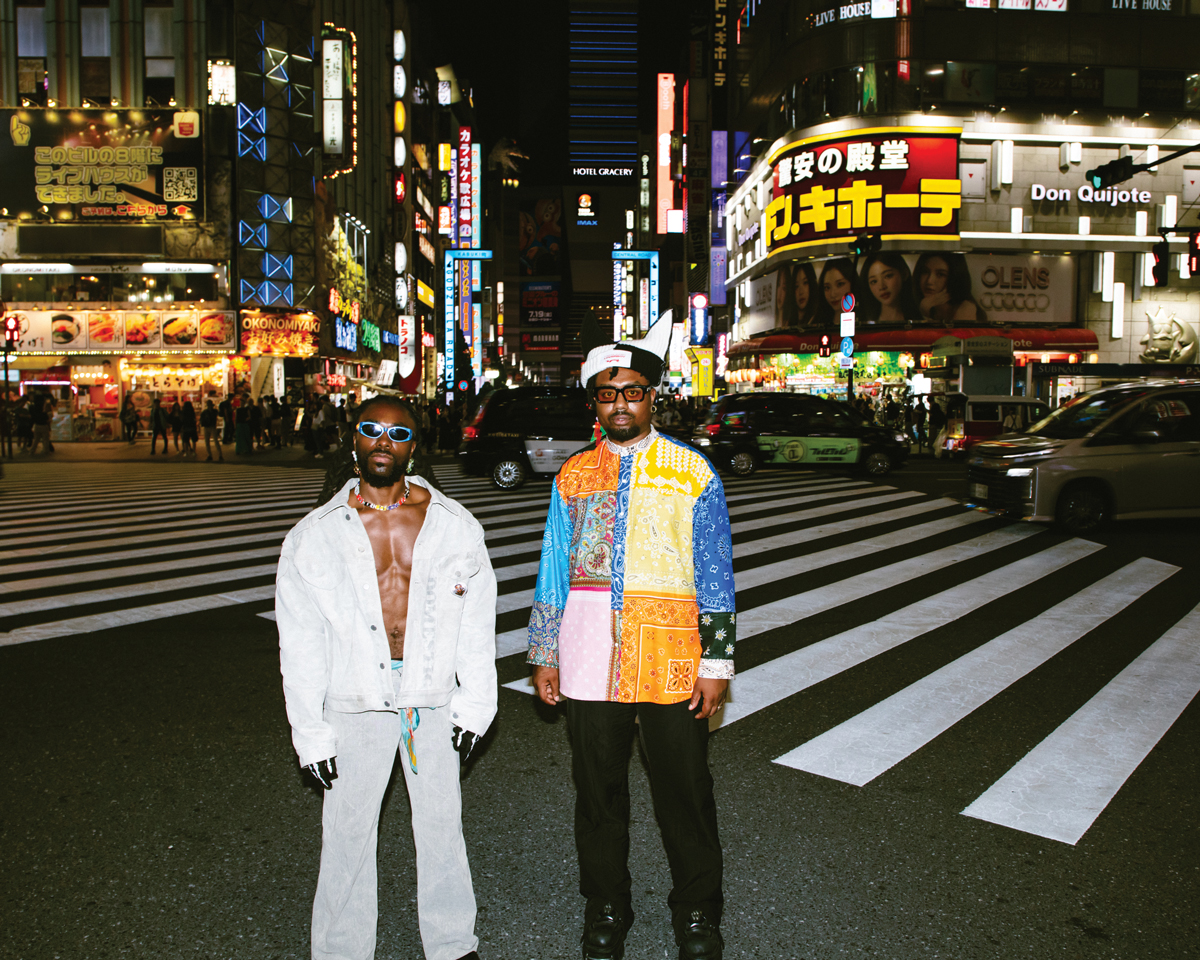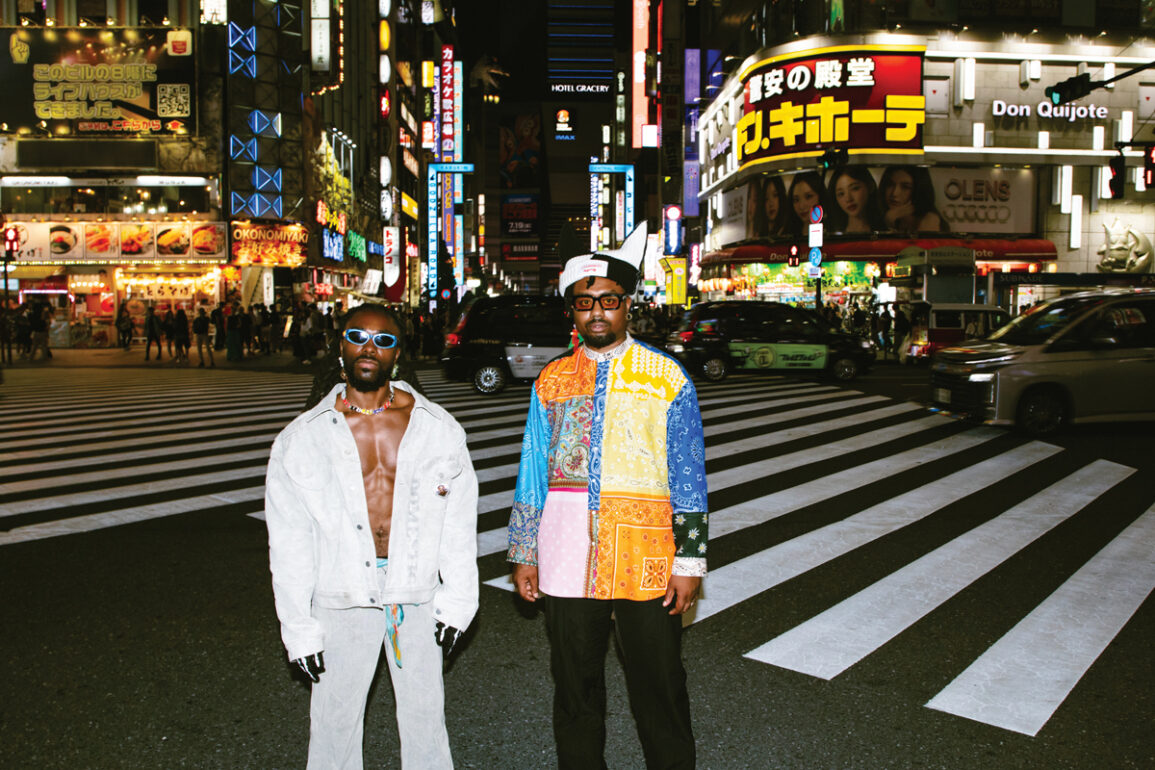
Photograph courtesy of Chika Takai
When Megan Thee Stallion’s viral 2024 hit “Mamushi” was released, listeners were surprised when Yuki Chiba’s rapid-fire Japanese rap suddenly cut through the speakers. The song, named after a venomous Japanese snake, was many Americans’ first introduction to Japan’s thriving hip-hop scene. But that country’s hip-hop roots reach back to the 1980s, when elements of American hip-hop culture—including breakdancing, graffiti, and fashion—found their way to and inspired a new generation of fans and artists.
While the densely worded English lyrics of rap music itself could make the genre inaccessible to many foreign listeners, the wider culture of hip-hop offered visual and aesthetic elements that transcended language barriers and laid the foundation for its global appeal.
Today, Japan boasts the second-largest music market in the world, valued at more than $2 billion. Even in a booming industry crowded with competitors from K-pop to J-pop, Atlanta artists continue to cultivate loyal fans in Japan, while Japan’s own cultural exports have inspired artists here in the rap capital of the United States.
Chika Takai—a model, dancer, and DJ for the Atlanta Hawks—credits Southern hip-hop with inspiring her to move to the U.S. “I’m proud to be based in Atlanta, the capital of hip-hop,” says Takai, who moved here to study dance, music, and English and later earned a spot on the Hawks dance team. In her years as an Atlantan, she’s witnessed firsthand how music shapes the city’s culture.
“Atlanta, like New York and California, has a very distinctive sound that I gravitated to,” she says. “Not just the Southern draw of T.I., but also the dance-inspired tones of Yung Joc and Unk and the lyrical range of OutKast.” Takai’s love of hip-hop music began in her native Japan when she was a young child dancing around Tokyo. Her interest in Atlanta’s hip-hop scene, from underground trap to Top 40 hits, ultimately led her to pursue a career as a professional DJ.
“All the way from Tokyo, it provided me with a glimpse into Atlanta’s culture that was pretty much spot-on,” she recalls. In Japan, she notes, American hip-hop is a source of deep fascination and inspiration. “People don’t just enjoy hip-hop as entertainment. They study it, embrace the trends, and build their own unique scene inspired by it.”

Photograph courtesy of Satin Heart
That cultural exchange travels in both directions. The innovative Atlanta-based rap group, EarthGang, recently put their admiration for Japanese pop culture front and center with Tokyolanta, a theme that undergirds their latest album, Perfect Fantasy. The duo, who grew up devouring Japanese anime on Cartoon Network after school, infused those aesthetics into the visuals that accompany Perfect Fantasy, from anime characters in their music videos to martial arts references in social media reels. EarthGang even went to Tokyo to film some of the content.
Both Atlanta and Japan’s hip-hop scenes were born out of marginalized communities, where music can be a powerful tool for addressing sociopolitical issues. American rappers have long used the genre to voice the struggles of Black communities, while Japanese rappers have turned to hip-hop as a means of rebelling against the country’s pressures of conformity. But each scene has its own distinct traditions and culture, which includes its own assumptions about who belongs.
Even though she’s been in Atlanta for years, Takai feels she is often still viewed as an outsider in the city’s hip-hop community, especially in the DJ scene, which has traditionally been dominated by Black men. “This is where I hit the trifecta—being Asian, female, and an immigrant is the perfect formula to be underestimated,” she says. “People sometimes assume that I don’t understand the variations [of] hip-hop within the genre or I culturally can’t connect to the music, because I’m not what they are used to seeing.”
As cross-cultural collaborations continue between Atlanta and Japan, Takai remains dedicated to bridging the gaps between the country she comes from and the city she now calls home. “There’s room for everyone,” she says of hip-hop. “When you’re in a space where you are different, know that you are going to be the most remembered.”
This article appears in our March 2025 issue.
Advertisement
This post was originally published on this site be sure to check out more of their content.







